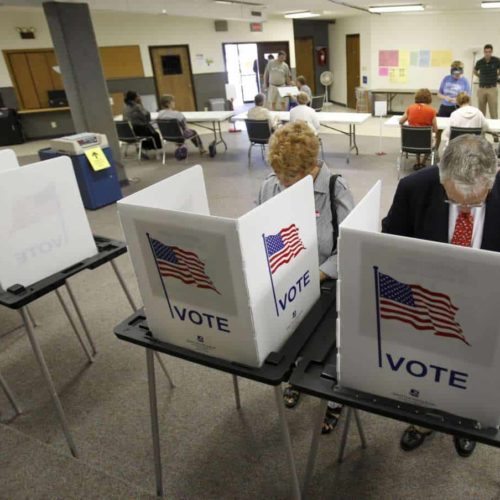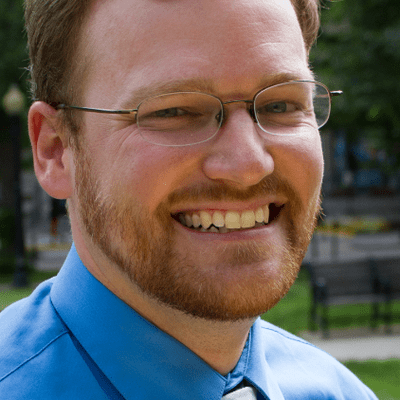Introduction
Despite a torrent of negative attacks, former four-term Wisconsin Gov. Tommy Thompson won the state’s Republican U.S. Senate primary for the open seat of retiring Democratic Sen. Herb Kohl Tuesday.
With 100 percent of precincts reporting, Thompson captured 34 percent of the vote while wealthy hedge fund manager Eric Hovde, who himself was hurt by a misleading ad in the final week of the contest, received 31 percent of the vote. Former Rep. Mark Neumann wsa third with 23 percent. Both candidates enjoyed pockets of support among tea party activists. State Assembly Speaker Jeff Fitzgerald was fourth with 12.4 percent.
Roughly $3.4 million was spent by super PACs, nonprofits and other independent groups advocating for the election or defeat of Senate candidates. About three-fourths went to harsh attacks, mainly focused on Thompson and Hovde, whose poll numbers surged toward the end of the race.
An anti-Hovde, $650,000 attack ad paid for by the nonprofit group Americans for Job Security may have helped Thompson. Hovde called the ad “patently false” and threatened legal action. The group altered the ad, called “Says and Does,” after the protest. The group’s nonprofit status means it is not required to reveal its donors.
Thompson’s victory came despite being outraised by his opponents.
Over the course of the campaign, Thompson raised about $3.1 million, including $500,000 of his own money during the final two weeks of the race. Meanwhile, Neumann raised about $3.8 million and Hovde raised more than $5.5 million, nearly all of it from his own pocket.
Thompson, who served as President George W. Bush’s Secretary of Health and Human Services, was backed by GOP leaders including former Florida Gov. Jeb Bush, former House Speaker Newt Gingrich and Indiana Gov. Mitch Daniels. But Neumann and Hovde challenged his conservative credentials.
Neumann was the favorite of the anti-tax Club for Growth and influential Sen. Jim DeMint (R-S.C.), while Hovde, a political neophyte, won the backing of former House Majority Leader Dick Armey’s FreedomWorks group.
The super PAC Club for Growth Action alone outspent all other non-campaign groups in the hotly contested race, pouring $1.6 million into ads supporting Neumann and attacking his opponents. Just over $900,000 of those independent expenditures were made in the two weeks leading up to the election.
“The amount of outside money is striking, especially the Club for Growth’s support for Neumann,” said Charles Franklin, a visiting professor of law and public policy at the Marquette University Law School who oversees the school’s polling.
Thompson’s win bucks a national trend in which candidates favored by the party establishment have been defeated by more conservative challengers. Republican in-fighting earlier this year contributed to the loss of establishment contenders in U.S. Senate races in Indiana, Texas, Nebraska and Missouri.
In the November general election, Thompson will face Democratic Rep. Tammy Baldwin, who has already been subjected to negative ads.
In late July, the U.S. Chamber of Commerce — a pro-business trade group and one of the most active political spenders — unleashed ads critical of Baldwin, totaling nearly $850,000.
Overall, outside groups have spent a combined $4.5 million on the Wisconsin U.S. Senate race — a figure that will continue to climb during the next three months as it remains a top target for both parties.
To date, independent groups have spent more than $300,000 on ads supportive of Baldwin. On Tuesday, a pro-lesbian super PAC called “LPAC” also pledged to spend at least $100,000 on “strong TV ads” during the general election.
Thanks to the Supreme Court’s Citizens United decision and a lower-court ruling, nonprofits, such as the Chamber and Americans for Job Security, as well as super PACs, may accept unlimited funds from corporations, unions and individual donors and spend that money on advertising attacking or supporting candidates as long as they aren’t coordinated with the candidate.
Tuesday’s GOP primary was largely overshadowed by Republican presidential candidate Mitt Romney’s weekend announcement that Rep. Paul Ryan — another Wisconsinite — would be his running mate.
“The Ryan announcement took the Senate race completely off the front pages and the television news,” said Franklin, of Marquette University. “I’m sure all three campaigns wish Romney had waited for Wednesday.”
John Dunbar contributed to this report.
Update (Aug. 15, 9:31 a.m.): This story was updated to include final vote percentages.
Read more in Money and Democracy
Money and Democracy
Daily Disclosure: Republicans say Americans bummed out by Obama
Malaise in Obama’s America?
Money and Democracy
Student ID cards far from sure ticket to the voting booth
New voter ID requirements in many states may blunt the clout of young voters



Join the conversation
Show Comments